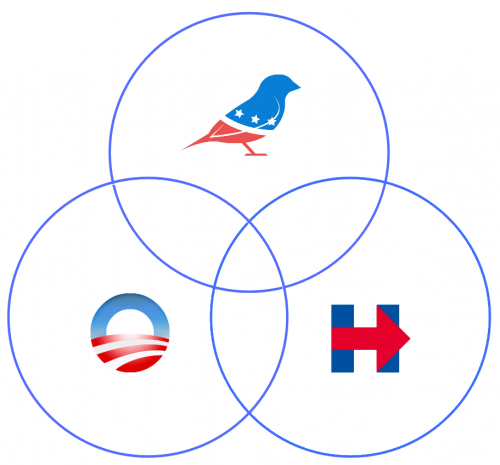The Democratic TriParty (Part 1: The Players)
Submitted by Not Henry Kissinger on Sun, 09/15/2019 - 2:00pm
Most of us are used to thinking about the current power dynamic within the Democratic Party in binary terms: Progressive vs Establishment.
Yet in the Byzantine world of big party politics, a dual-faction, 'us vs them' paradigm does a poor job of explaining the reasons for the endless shifting alliances and seemingly contradictory rhetoric of many Democrats.
I argue that instead of two, there are actually three major centers of influence within the Democratic party, and that recognizing the similarities and differences between them is essential to understanding the struggle for control.

